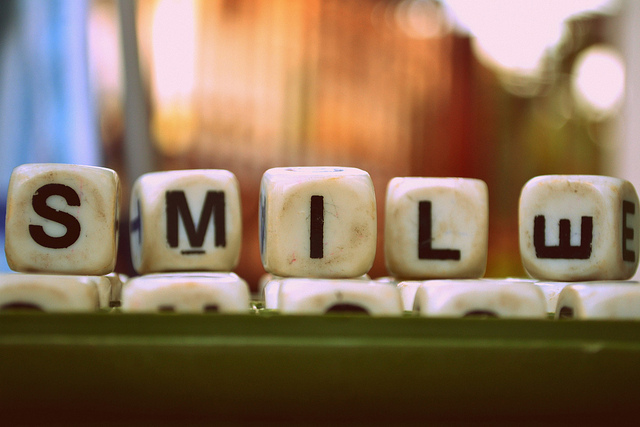Years ago, a friend was telling me about an acquaintance of hers, who was upset that she had not been promoted on her job.
My friend, a psychologist, simply said that she should smile more. Those words always stuck with me, and as years went by, the field of positive psychology emerged.
Instead of focusing on more negative emotions—like anger and guilt—positive psychology looks at the roles of gratitude, compassion, empathy, laughter and happiness in our lives. It was through positive psychology that I realized the wisdom of her words.
Smiles most often can beget smiles in others, and they can calm anxiety and brighten our blue moods. People who smile are generally liked more, and the world is more responsive to them. For example, in his book Born to Be Good, Dacher Keltner reported a study of young children with non-smiling mothers and found that they explore their environment less, no longer engage in imaginative play and are more easily agitated.
The author also reported a study where infants were either encouraged through smiling to explore their environment or were with mothers who did not smile and expressed fear about exploring. The environment was actually a glass surface covering, over a steep visual cliff. The infants of smiling mothers were willing to explore the cliff.
If you think about it, when someone smiles, it is an invitation to trust. We would be less apt to trust people who are fearful.
I did my own experiment several years ago, deciding to smile at many of my neighbors passing in the street and people who worked in the neighborhood. Little by little, I found myself never walking down the street feeling alone, as there were so many smiles to share. It was a morning boost to start my day, and in ways, it gave a more pleasant jolt than a cup of coffee.
Smiling also opened the doors to conversations in which I met people, from all walks of life, who would have stayed behind closed doors had I not opened them with a smile. People, all and all, like smiles.
I’ve also realized that some people seek out smiles from the environment. I was at a small gathering a few months back, feeling a little blue and not feeling much like smiling. But the moment that I broke into a genuine smile, one of the guests affectionately commented on my smile. I take an optimistic view that smiling is a natural way of engaging with others observed as early as infancy. True there are people who wear shields, and are less apt to smile, but I want to believe that this is more the exception than the rule.
In terms of work—while it is true that “look-ism” is a reality and that good looks can play a real role in the hiring process—my guess is that smiling factors in as well. It is always more pleasant and easy to trust and talk to someone who smiles. The smile, of course, needs to be genuine, since fake smiles can breed mistrust in people.
Smiling also has health benefits, including reducing blood pressure and boosting the immune system. Smiling is calming and soothing to the body—it’s a healthy antidote to stress.
Even if we don’t feel like smiling, let’s try to make an extra effort to smile, as it can be nourishing to the body and mind.
It is my hope that these thoughts will help to spread smiles and laughter.
.
Relephant:
Rambling On Smiling
10 Quotes to Make Us Smile.
.
Author: June Rousso
Editor: Yoli Ramazzina
Photo: Flickr/Denise Sebastian









Read 0 comments and reply